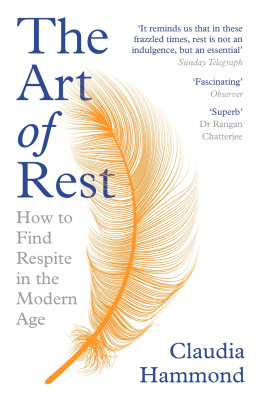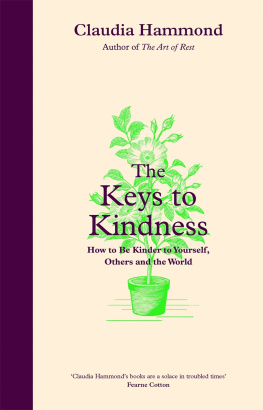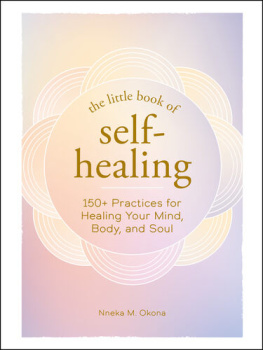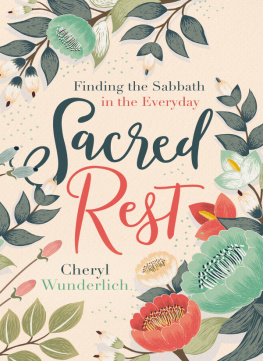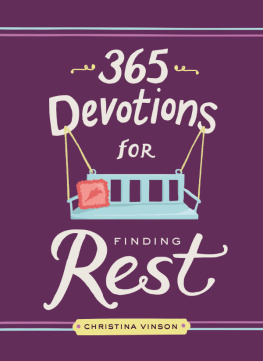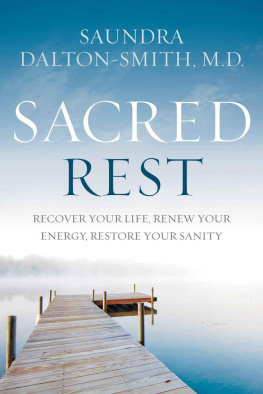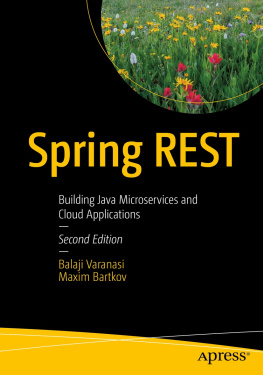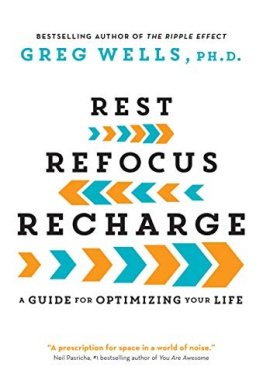Claudia Hammond is an award-winning writer and broadcasterand Visiting Professor in the Public Understanding of Psychologyat the University of Sussex. As the presenter of All in the Mindshe is BBC Radio 4s voice of psychology and mental health. Shehas been awarded the Presidents Medal from the British Academy,the British Psychological Societys Public Engagement & MediaAward, Minds Making a Difference Award and the BritishNeuroscience Associations Public Understanding of NeuroscienceAward. She is the author of Emotional Rollercoaster, Mind over Moneyand Time Warped, winner of the British Psychological Societys BestPopular Science Book Award and the Aeon Transmission Award.
@claudiahammond | claudiahammond.com
Also by Claudia Hammond
Emotional Rollercoaster
Time Warped
Mind Over Money
The paperback edition published in Great Britain in 2020
by Canongate Books
First published in Great Britain in 2019
by Canongate Books Ltd,
14 High Street, Edinburgh EH1 1TE
canongate.co.uk
This digital edition first published in 2019 by Canongate Books
Copyright Claudia Hammond, 2019
The right of Claudia Hammond to be identified as the
author of this work has been asserted by her in accordance
with the Copyright, Designs and Patents Act 1988
British Library Cataloguing-in-Publication Data
A catalogue record for this book is available on
request from the British Library
ISBN 978 1 78689 282 9
eISBN978 1 78689 281 2
For Jo and Grant
CONTENTS
A CALL TO REST
The Rest Deficit
P icture a hammock one of those multicoloured stripy ones. It sways back and forth gently in a light tropical breeze. The air is deliciously warm. Far below the hotel balcony, the sea (turquoise, of course) glints in the sunshine.
For many of us this is the classic image of rest, where no one requires anything from us. But its not straightforward. Hammocks can be tricky. You have to get in without over-balancing and tipping out of the other side. You need to shuffle up or down the hammock to find a place where you can lie in comfort. You might need to get up to fetch a cushion for your head and then go through the whole fuss and bother again. Finally, though, you achieve the right balance. A feeling of serenity washes over you. You can relax.
Or can you?
Even once you are comfortable in your hammock it can be hard to sustain the sense of restfulness. This feeling reflects our relationship with rest in general. We have an ambivalence towards it. We yearn for rest, but then feel anxious that perhaps we are being lazy. Perhaps we are not making the most of our lives.
One of the things that distinguishes us human beings from many other animals is our curiosity. Even now that many of us have everything we need to stay alive, we still want to see what is over the next hill or across the ocean or on a distant planet. We have an urge to explore, to discover more, to find meaning. Our curiosity has been key to our survival and our success as a species, but the downside of this curiosity is that it can make us restless. We always feel we must be doing something. And we have come to define doing something very narrowly. It means, for most of us, being busy. And not just some of the time, but all of the time.
Yet Socrates told us to beware the barrenness of a busy life. If were busy all the time, life lacks essential rhythm. We miss out on the contrasts between doing and not doing. This oscillation is natural and healthy. As if we are back in that hammock, we should swing back and forth between activity and rest, taking the latter as seriously as the former.
We need to rest more. And to rest better. For its own sake, of course, but also for the sake of our wider lives. Resting is good not just for well-being but for productivity. A quick search online reveals that this is the age of self-care. Whatever you think about the term, the concept is a good thing. And the best kind of self-care, I will argue, is rest.
Yet at the moment we suffer from a rest deficit. This was perhaps the most significant finding of the major survey that informs the structure of this book. The survey was called the Rest Test, and 18,000 people living in 135 different countries chose to take part. I will be returning to the Rest Test later in this introductory chapter, but, as I say, among its most important findings was that many of us feel we are not getting enough rest. Two thirds of respondents said this was true of them and that they would like more rest. Women reported getting an average of ten minutes less time to rest each day than men, and people with caring responsibilities also had less rest. But it was younger people, both men and women, working either shifts or traditional full-time hours, who felt they rested the least.
This chimes with a general sense that younger people are stressed out and struggling to cope with lifes pressures. In January 2019 a BuzzFeed article called How Millennials Became the Burnout Generation went viral. The journalist Anne Helen Petersen began by explaining how there were so many jobs on her to-do list that she had developed errand paralysis, leaving her unable to accomplish any of the tasks. Some older people are dismissive of this angst and label millennials derogatively as snowflakes. But I think Petersen and her generation are on to something. Certainly, I can relate to her naming her backlog of emails her inbox of shame, as I currently have 50,449 emails in my inbox. The point is wider than this, though.
Theres no doubt that being in your twenties today is challenging, with intense competition for university places and jobs, coupled with an all-too-real prospect, depending on where you live, that property prices might mean you will forever be forced to live the itinerant life of a tenant. On top of that, the prospect of this generation becoming more prosperous than their parents is vanishing and millennials cant expect to benefit from the generous pension schemes that still exist for some of the older generation today. But for every one of these pressures, Generation Xers and Baby Boomers have their own. Millennials might be more open about confessing it, but most, if not all, of us often feel stressed out by a seemingly never-ending stream of tasks. Modern work practices, modern lifestyles and modern technology have combined and conspired to make life in the early twenty-first century ceaselessly demanding. Thanks to our clever phones, we feel forever on call, knowing that even when we do rest, that rest can be interrupted by anyone at any moment.
We want to rest more, we could rest more, we are perhaps resting more than we think we are but we certainly dont feel rested.
Im not especially good at resting myself, or I wasnt until I start focusing on the topic. When I told friends that after writing books covering emotions, time perception and the psychology of money I had started writing one on rest, their first reaction was usually, But youre always working. You never rest!
If someone asks me how things are going, I tend to answer, Fine, busy, too busy really. This feels true of my life, but how much is it also a claim to status? If you say you are busy then it implies you are wanted. You are in demand. As the time use researcher Jonathan Gershuny puts it, busyness has become a badge of honour. In contrast to the nineteenth century, in the twenty-first century it is work, and not leisure, that gives us social status. Our busyness illustrates just how important we are, but at the same time we feel exhausted.

